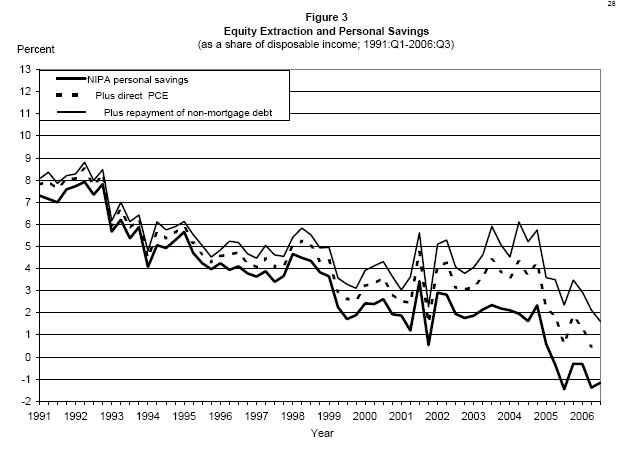As you should know by now I create these threads in order to learn. So please refrain from posting these kind of posts in threads I start. Thank you.Because, unlike Europeans, Americans are pretty much all idiots. Unlike Europeans, we don't have any fiscal responsibility. Unlike Europeans, most Americans don't even know how to do simple financial math, because unlike europeans, most Americans are born stupid (from all the chemicals that we have in our food, unlike in Europe), and if they aren't born stupid then we go through our horrible public school system (unlike in Europe, Americans don't care about education). Unlike Europeans, we'd rather eat 20 big macs and drive SUVs all day than save money. Unlike Europeans, we have to pay for EVERYTHING because our fascist government (elected becuase we're all stupid) doesn't give us any social programs. Unlike Europeans, we're tricked into donating our savings to churches anyways, because unlike Europeans, Americans are all stupid sheep who believe they will go to hell if they don't donate to evangelical christian groups. Unlike Europeans, Americans are incapable of appreciating the finer things in life. Unlike Europeans, we don't understand how to have fun if we aren't spending money (and unlike Europeans, when we do spend money, we don't spend it on fine food and art and books, but rather on violent video games and big macs). Unlike Europeans, we're addicted to spending all our money at the gas pump, because unlike Europeans, we're too stupid and lazy to use public transportation. Unlike Europeans, we have no ability to look towards the future, because unlike Europeans we pretty much all believe that the rapture/apocalypse is going to happen very very soon, so we have no reason to save money.
Please don't blame us Rik, we're just a bunch of lazy idiots. We're all so stupid... please teach us your European ways!
Some monetarists think it's only a matter of time for the USD to be devalued as a currency (for instance disconnected from the oil-price etc.). Are you saying that, if the monetarists are right, the US will lose the postion you paint and can't afford to "not save" any longer ?America is the consumer of last resort. Since the dollar is the reserve currency, it is much easier for America to have a low savings rate because everyone else in the world has to hold dollars in reserves to back their currency and they have a supply to lend America. That means a lot of purchasing power is locked away because everyone is holding dollars, and America gets cheap loans in order to make up for the gap. But what happens is that the increasing deficit eventually brings the dollar back down, which is the problem with being a reserve currency. The same thing is starting to happen to the euro, as people hoard reserves of euros...
And what other consequences do you see ?
(I'm not educated well in economics so if these questions are silly; that's the reason)







 Kidding!
Kidding!